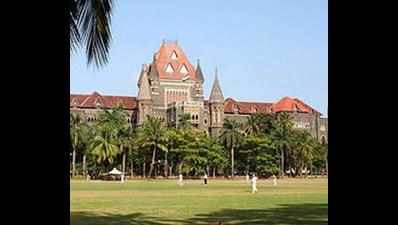- News
- City News
- mumbai News
- Slain activist’s bro set to get justice 30 yrs on
Trending
This story is from October 23, 2016
Slain activist’s bro set to get justice 30 yrs on
Septuagenarian Gangadhar Mhatre’s three-decade-old fight to get the police to prosecute the alleged killers of his brother Yadav, a social activist in Vasai, has finally succeeded. The Bombay high court has given the go-ahead for the trial against seven of the accused—who are now in their 70s and 80s—to be completed within nine months.

MUMBAI: Septuagenarian Gangadhar Mhatre’s three-decade-old fight to get the police to prosecute the alleged killers of his brother Yadav, a social activist in Vasai, has finally succeeded. The Bombay high court has given the go-ahead for the trial against seven of the accused—who are now in their 70s and 80s—to be completed within nine months.
“It is unfortunate that the case is pending for more than 30 years.It appears that some of the accused have in the interregnum also expired,” said Justice Revati Dere. “It would indeed be a travesty of justice, if the trial is delayed any longer. Considering that the incident is of 1987, the trial is expedited,” added the judge, while dismissing the petitions filed by seven of the surviving accused who had challenged the initiation of criminal proceedings against them.
Yadav was an witness in the 1973 murder of social reformer Buwa Samant, who worked for the welfare of adivasis. Yadav had claimed the prime accused in Samant’s murder, Govind Patil, had threatened to kill him. On June 29, 1987, eight men opened fire and stoned Yadav to death. Gangadhar, who was the sole eyewitness of his brother’s murder, filed a complaint and named Govind, his sons Kishan and Mahadeo, Baban Gharat, Kanti Dhumal, Baban Patil, Atmaram Jadhav and Kishan H Patil in the FIR. The police, however, discharged the eight named in the FIR and charged four members of a tribal family. Even as Gangadhar argued that the four tribals had not murdered his brother, the discharge order went up to the Supreme Court. Meanwhile, trial in the case proceeded and three of the tribals were let off. In June 2009, Gangadhar informed the sessions court that the real killers had not been charged. The court then acquitted the fourth tribal and rejected the prosecution’s plea to proceed against the eight accused named by Gangadhar.
The order was challenged before the HC, which in 2013, said it was a ‘miscarriage of justice’. The HC pointed out that Gangadhar had consistently maintained that the wrong persons had been charged with his brother's murder and directed the sessions court to decide on the prosecution’s application to prosecute the eight accused.
“It is unfortunate that the case is pending for more than 30 years.It appears that some of the accused have in the interregnum also expired,” said Justice Revati Dere. “It would indeed be a travesty of justice, if the trial is delayed any longer. Considering that the incident is of 1987, the trial is expedited,” added the judge, while dismissing the petitions filed by seven of the surviving accused who had challenged the initiation of criminal proceedings against them.
Yadav was an witness in the 1973 murder of social reformer Buwa Samant, who worked for the welfare of adivasis. Yadav had claimed the prime accused in Samant’s murder, Govind Patil, had threatened to kill him. On June 29, 1987, eight men opened fire and stoned Yadav to death. Gangadhar, who was the sole eyewitness of his brother’s murder, filed a complaint and named Govind, his sons Kishan and Mahadeo, Baban Gharat, Kanti Dhumal, Baban Patil, Atmaram Jadhav and Kishan H Patil in the FIR. The police, however, discharged the eight named in the FIR and charged four members of a tribal family. Even as Gangadhar argued that the four tribals had not murdered his brother, the discharge order went up to the Supreme Court. Meanwhile, trial in the case proceeded and three of the tribals were let off. In June 2009, Gangadhar informed the sessions court that the real killers had not been charged. The court then acquitted the fourth tribal and rejected the prosecution’s plea to proceed against the eight accused named by Gangadhar.
The order was challenged before the HC, which in 2013, said it was a ‘miscarriage of justice’. The HC pointed out that Gangadhar had consistently maintained that the wrong persons had been charged with his brother's murder and directed the sessions court to decide on the prosecution’s application to prosecute the eight accused.
In August 2016, the sessions court initiated criminal proceedings against seven of the accused—Govind passed away during pendency of the case. The order was challenged by them claiming proper procedure had not been followed and the trial will have to commence afresh and a new chargesheet will have to be filed. But the HC rejected the contention and directed the trial court to expedite the hearing of the case.
End of Article
FOLLOW US ON SOCIAL MEDIA











